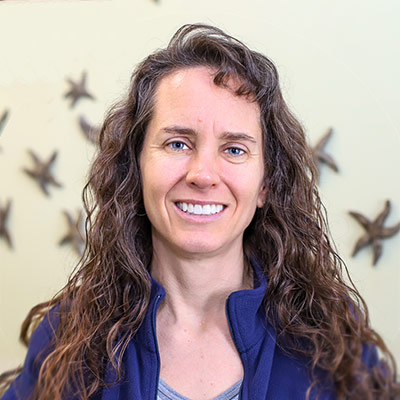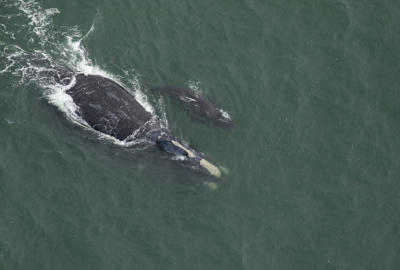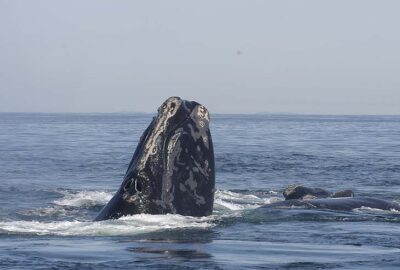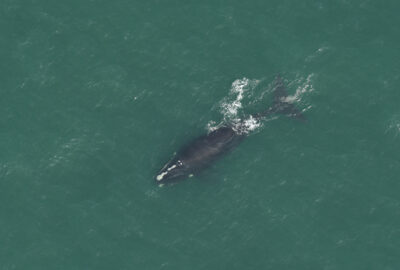Estimating reductions in the risk of vessels striking whales achieved by management strategies
By Jessica V. Redfern, Brooke C. Hodge, Daniel E. Pendleton, Amy R. Knowlton, Jeffrey Adams, Eric M. Patterson, Caroline P. Good, Jason J. Roberts
Originally published in Biological Conservation in January 2024

Abstract
Methods to evaluate strategies to reduce the risk of vessels striking whales are needed to balance species protections with economic consequences. Previously used simplistic methods do not include important elements of vessel-strike risk. More complex methods often include parameters that have not been estimated for whales. Additionally, the whale and vessel metrics used in all methods are important because they may lead to biases in estimated risk reductions. We build a simple metric, Total PLETHd, from three components: (1) the relationship between vessel speed and the probability that a strike is lethal (PLETH), (2) vessel transit distance, and (3) whale distributions. Total PLETHd is calculated by multiplying estimates of whale distribution by the sum of transit distance multiplied by transit PLETH. We use this metric to assess risk reductions for North Atlantic right, humpback, fin, and sei whales on the United States East Coast. We found that a 10 kt speed restriction was necessary for reducing risk and that speed restrictions applied in broad areas defined by whale habitat were almost as effective as restrictions applied throughout all East Coast waters. While our areas were primarily defined to protect right whales, our results suggest they also protect humpback, fin, and sei whales. Total PLETHd represents an improvement over previous methods for estimating risk reductions because it addresses limitations in these methods. It can be used to estimate risk reductions for multiple species associated with management strategies, including changing vessel routes and implementing speed restrictions in different areas and time periods.
Full Text
- Read in Biological Conservation






